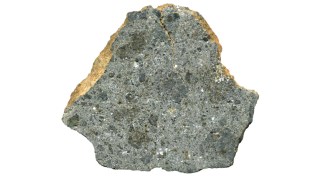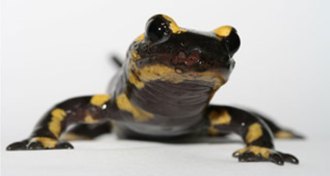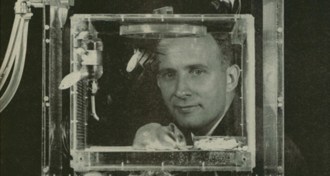Uncategorized
-
 Planetary Science
Planetary ScienceWater arrived on Earth earlier than thought
Ancient meteorites from the asteroid Vesta indicate that Earth’s water was available before planet formed.
-
 Psychology
PsychologyRip-off victims prefer compensation to retribution
But those acting on behalf of victims favor a punishment that fits the crime.
By Bruce Bower -
 Neuroscience
NeuroscienceA species of invention
From early humans painting on cave walls to modern-day engineers devising ways to help people move better, the drive to innovate is simply part of who humans are.
By Eva Emerson -

-
 Neuroscience
NeuroscienceAt-home brain stimulation gaining followers
People are building at-home electric brain stimulators in hopes of becoming better gamers, problem solvers, and even to beat back depression.
-
 Math
MathSpirals inspire walking aids for people with disabilities
Long admired for their beauty, spirals have inspired a shoe that may help disabled people walk. The shapes make for a better crutch and an entertaining skateboard as well.
-
 Paleontology
PaleontologySome trilobites sported dual digestive tracts
CT scans reveal trilobites with two-lane digestive tracts.
-
 Life
LifeClose look at new fungus reveals origins, spread of salamander killer
A second chytrid fungus described last year targets salamanders and may be spreading in the animal export trade.
By Susan Milius -
 Earth
EarthEarly animals couldn’t catch a breath
Low levels of oxygen may have hindered evolution of animal life hundreds of millions of years ago.
-
 Tech
TechSheath helps ‘aqua-hamster’ survive underwater
Scientists hoped a membrane invented in 1964 would let submarines pull air from seawater.
-
 Animals
AnimalsNew frog species discovered in New York City
A new frog species lives up and down the East Coast. It was discovered when ecologists realized its ‘ribbit’ was distinct from the calls of a lookalike species.
-
 Health & Medicine
Health & MedicineMini stomachs grown in lab
Clumps of human gastric cells could help researchers study stomach diseases.
By Meghan Rosen